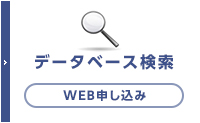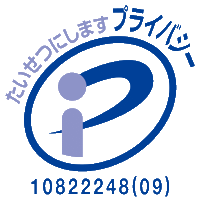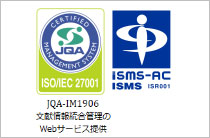ホームIMICライブラリMMWR抄訳2019年(Vol.68)紅斑熱リケッチア症の確定例と高度疑い例の分類に使用・・・
2019/03/15Vol. 68 / No. 10
MMWR68(10):243-246
Diagnostic Methods Used to Classify Confirmed and Probable Cases of Spotted Fever Rickettsioses — United States, 2010–2015
紅斑熱リケッチア症の確定例と高度疑い例の分類に使用される診断法 ― アメリカ、2010年~2015年
ロッキー山紅斑熱などの紅斑熱リケッチア症(SFR)は、紅斑熱群リケッチアによって引き起こされ、アメリカでは届け出対象疾患である。 SFRの年間罹患率は、2000年の100万人あたり1.7例から2016年には13.2例に増加した。 これはSFR症例の大幅な増加を示しているが、現在の症例定義は、診断を裏付けるために非特異的な検査基準を許容しているので、増加の実質的な大きさには疑問がある。 2010年から2015年の間に発症したSFR症例の診断を裏付けるために使用された臨床検査データの品質を分析するために、CDCは補足的症例報告書を検討した。2010年から2015年に、SFRの確定例または高度疑い例の定義を満たす16,807例がCDCに報告された。年間報告数は、2010年の1,617例から2015年には2,275例に増加した。全体として、SFRの既報は167例(1.0%)であり、102例はセロコンバージョン、66例はPCR法、免疫組織化学(IHC)法、培養のいずれか、1例はセロコンバージョンとPCR法の両方によって確定された。 確定例では、発病から最初の検体採取までの期間の中央値は4日[四分位範囲(IQR) =11~6日]で、免疫蛍光法(IFA)による IgG(IFA IgG)検査は初回検体の124例(74.3%)で報告され、91例(73.4%)が陽性であり、そのうち46例は力価≧1:128であった。複数の検体が報告された確定例112例のうち、初回から2回目の検体採取までの期間中央値は19日(IQR=16~23日)で、IFA IgAを検査した2回目の検体(107例、95.5%)のうち、104例(97.2%)が陽性であった。また、16,640例(99.0%)がSFRの高度疑い例の基準を満たしていた。検体中のIFA IgG力価の上昇が、最も多く報告された裏付けとなる検査所見であった(14,784例、88.8%)。高度疑い例では、IFA IgM力価の上昇が2,117例(12.7%)、ELISA法陽性は2,235例(13.4%)、ラテックス凝集法陽性は25例(1.0%未満)で報告された。高度疑い例のうち、発症から最初の検体採取までの期間中央値は5日(IQR=2~11日)で、検体の77.2%は発症した週に採取された。高度疑い例では、IFA IgG試験は初回検体の90%で実施され、2回目の検体が採取された2,942例のうち1,618例(55.0%)で実施された。全体として、推奨された期間内におけるペア検体のIFA IgG検査の報告は、高度疑い例で少なく(218例、1.3%)、高度疑い例のほとんどが1回のIFA IgG力価の上昇(13,557例、81.5%)を根拠としていた。分子アッセイの使用を増やし、適切なタイミングで検体を最終し、不確かな検査基準を廃止することがアメリカでのSFR疫学の理解を深める上で重要かもしれない。
References
- CDC. National Notifiable Disease Surveillance System. Annual tables of infectious disease data. Atlanta, GA: US Department of Health and Human Services, CDC; 2017. <https://www.cdc.gov/nndss/infectious-tables.html>
- Openshaw JJ, Swerdlow DL, Krebs JW, et al. Rocky Mountain spotted fever in the United States, 2000–2007: interpreting contemporary increases in incidence. Am J Trop Med Hyg 2010;83:174–82. <https://doi.org/10.4269/ajtmh.2010.09-0752>
- Council of State and Territorial Epidemiologists. Position statement 09-ID-16: public health reporting and national notification for spotted fever rickettsiosis (including Rocky Mountain spotted fever). Atlanta, GA: Council of State and Territorial Epidemiologists; 2009. <https://c.ymcdn.com/sites/www.cste.org/resource/resmgr/PS/09-ID-16.pdf>
- Regan JJ, Traeger MS, Humpherys D, et al. Risk factors for fatal outcome from Rocky Mountain spotted fever in a highly endemic area—Arizona, 2002–2011. Clin Infect Dis 2015;60:1659–66. <https://doi.org/10.1093/cid/civ116>
- Delisle J, Mendell NL, Stull-Lane A, Bloch KC, Bouyer DH, Moncayo AC. Human infections by multiple spotted fever group Rickettsiae in Tennessee. Am J Trop Med Hyg 2016;94:1212–7. <https://doi.org/10.4269/ajtmh.15-0372>
- Raoult D, Parola P. Rocky Mountain spotted fever in the USA: a benign disease or a common diagnostic error? Lancet Infect Dis 2008;8:587–9. <https://doi.org/10.1016/S1473-3099(08)70210-X>
- McQuiston JH, Wiedeman C, Singleton J, et al. Inadequacy of IgM antibody tests for diagnosis of Rocky Mountain spotted fever. Am J Trop Med Hyg 2014;91:767–70. <https://doi.org/10.4269/ajtmh.14-0123>
- Graf PC, Chretien JP, Ung L, Gaydos JC, Richards AL. Prevalence of seropositivity to spotted fever group Rickettsiae and Anaplasma phagocytophilum in a large, demographically diverse US sample. Clin Infect Dis 2008;46:70–7. <https://doi.org/10.1086/524018>
- Marshall GS, Stout GG, Jacobs RF, et al.; Tick-Borne Infections in Children Study Group. Antibodies reactive to Rickettsia rickettsii among children living in the southeast and south central regions of the United States. Arch Pediatr Adolesc Med 2003;157:443–8. <https://doi.org/10.1001/archpedi.157.5.443>
- Kato CY, Chung IH, Robinson LK, Austin AL, Dasch GA, Massung RF. Assessment of real-time PCR assay for detection of Rickettsia spp. and Rickettsia rickettsii in banked clinical samples. J Clin Microbiol 2013;51:314–7. <https://doi.org/10.1128/JCM.01723-12>
Copyright © 2013 International Medical Information Center. All Rights Reserved.












